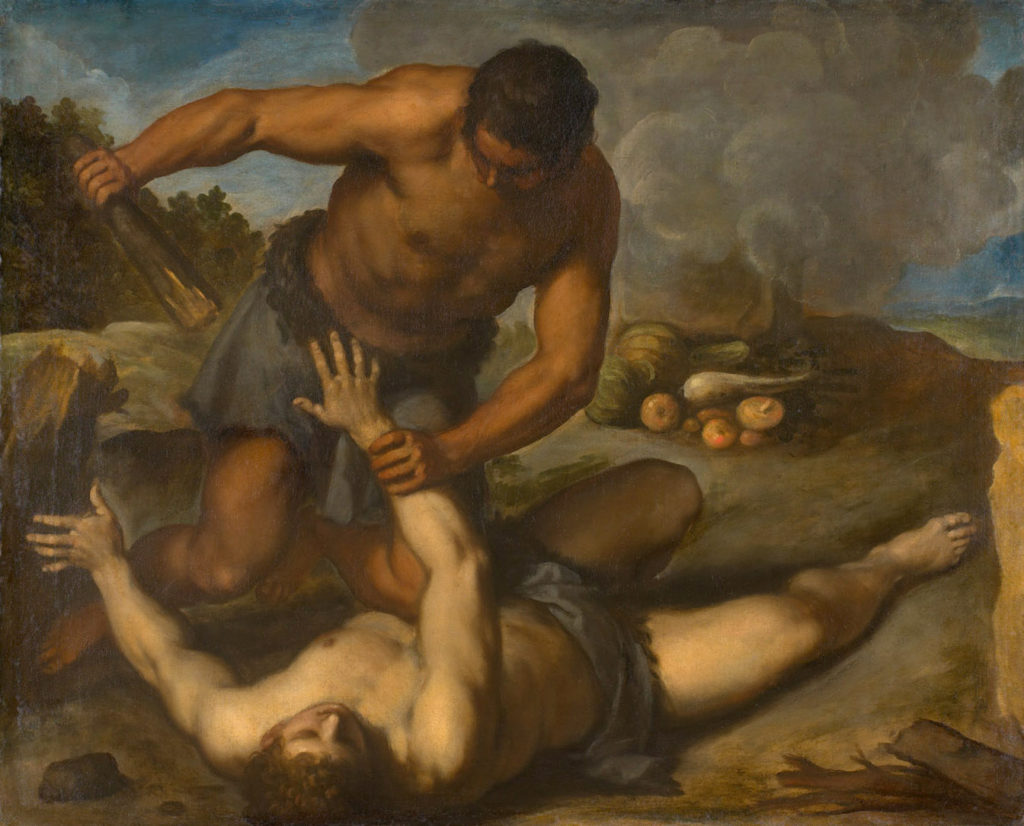Our culture is permeated with anger, hatred and bitterness. Perhaps the pervasive and unrestrained presence of those negative emotions has lulled us into thinking that the relative anonymity of the Internet somehow protects us from consequences. The Biblical story of Cain and Abel, though, makes it clear that the consequences of negative attitudes are deadly.
But what about the contrasting state of mind – righteousness. Christ’s words challenge us, “Blessed are those who hunger and thirst after righteousness, for they shall be filled.” What does it mean to be filled with “righteous” in a culture saturated with anger, hatred and bitterness?
Surprisingly, there is little to help us operationalize “righteousness” in day-to-day living. Mostly, the commentaries help us grasp the visceral nature of “hungering and thirsting” and the attendant satisfaction when these needs are met, but the characteristics of righteousness remain enigmatic; no practical “how-to” examples are offered. Thus, the question for a Christian layperson remains, “What is a workable definition of righteousness?”
For the more theologically trained, my quest is probably as naive as asking what blue is, or black or green or yellow. Still, I ponder, by summoning opposites of righteousness. In the story of Cain murdering his own brother, Abel, we have a clear example of the opposite of righteousness.
The source of Cain’s jealousy and anger is not clear. Cain was a farmer and Abel raised animals. Both offered sacrifices to God from the fruits of their labors. We aren’t told why the sacrifices were being offered, whether they were related to forgiveness for sins committed or to thanksgiving for the blessings of sunshine and rain needed to make crops grow or provide grass and water for the animals. We aren’t told the requirements for making appropriate and acceptable sacrifices to God, just that Cain’s sacrifice did not win God’s favor, that Cain responded with anger, and that God told Cain that he had to do what was right in order to be accepted.
So we come right up against the fundamental issue: who gets to define what is good and right. That’s the basic question that Adam and Eve encountered in the Garden of Eden. Does the Creator of all things know what actions and attitudes are best and most consistent with the way he designed things? Or has today’s intelligent and well-educated person moved beyond dependency on God to decide for him or herself what is good and most beneficial?
As the story of Cain and Abel plays out, we see that a fuming Cain, unable to contend with God, projects his growing resentment and festering hatred over to his brother Abel – the favored one — whose “righteous” actions stand in condemnation of his own. The danger of negative emotions is seen here in dramatic relief. Thinking “wrong” thoughts is not harmless; With Cain, hatred resulted in him physically murdering his brother.
The obvious lesson is that what we think in our hearts and minds has consequences; we cannot claim that our thoughts and feelings are our own personal affair, that they are no one else’s business, and that we have a “right” to our emotional feelings, reactions and responses. Nor can we claim that we have earned the right to make our own determinations and have our own feelings and attitudes.
It’s easy to look around and see other people’s anger over the circumstances of their life—some of their own making, some not–metastasizing into hatred—sometimes of themselves but often spilling over to include others, and ultimately including God himself. Often negative attitudes find expression in a rant on the internet involving the verbal “destruction” of another person – the object of the anger and hatred.
Does pondering anger and hatred ultimately bring me any closer to understanding its opposite — the nature and meaning of righteousness? Many people describe Abel’s “righteousness” as the cause of Cain’s rage, meaning that Abel acted in accordance with what he understood to be right. Right, then, is behaving in harmony with the design of the Creator. Abel did not choose to do as he pleased; rather he sought to bring his behavior into conformity with what he understood to be pleasing to God.
Obviously, our understanding is not always perfect; even so, we must accept God’s judgment as to what is right and good while not fully understanding everything or clearly seeing all the ramifications. In today’s complicated world, there are situations and circumstances where we don’t always know what is right, other circumstances where there is no “righteous” choice, even more situations where there are peripheral and/or hypothetical complexities that cloud the issue. As a practical matter, though, decisions often boil down to a basic principle. We know, for example, that infidelity is not right and will destroy a marriage. We know that dishonesty is not right and will destroy a business or career.
When Christ’s disciples asked that he teach them how they should pray, he offered a prayer – The Lord’s Prayer– that is at once simple and profound. We must recognize and acknowledge that we depend on the heavenly Father for all the material things of life that sustain us, as symbolized in the phrase requesting our daily bread. He follows that with a phrase—one that at first appears to be a discontinuity—requesting forgiveness for our trespasses as we forgive those who trespass against us. What he is implying, however, is that as much as we are going to need physical maintenance daily, we are going to need daily mental and emotional maintenance as well. Things will go wrong, constantly and repeatedly. Every day we will need to deal with the negative thoughts and emotions that arise in our interactions with others. These infractions—emotional cuts and bruises–need daily cleansing to prevent them from becoming infected. If we ignore their presence and pretend they don’t exist, like bad seed carried by the wind, they will take root and turn into anger and bitterness. It is just as God warned Cain. “. . . Sin is crouching at your door; it desires to have you, but you must rule over it.”
Without daily forgiveness, anger turns into resentment, resentment into hatred, and evil consequences follow. Apparently then, the righteous are those who keep their hearts attuned to God’s leading and maintain a forgiving spirit.

Janice Shaw Crouse, PhD. is a member of the Board of Directors for The Institute on Religion and Democracy. She is author of A Different Kind of Strength, Children at Risk and Marriage Matters and a former Presidential Speechwriter.





Comment by George Sidor on April 18, 2020 at 8:59 pm
I think the NT has many statements and hints on how to live a righteous life. Primarily, walk by the Spirit, and through that, put to death your carnal/evil desires.
Galatians 5:16: So I say, walk by the Spirit, and you will not gratify the desires of the flesh.
Romans 8:13
For if you live according to the flesh, you will die; but if by the Spirit you put to death the deeds of the body, you will live.
Collosians 3:4-5
When Christ, who is your life, appears, then you also will appear with Him in glory. 5 Put to death, therefore, the components of your earthly nature: sexual immorality, impurity, lust, evil desires, and greed, which is idolatry. 6 Because of these, the wrath of God is coming on the sons of disobedience.